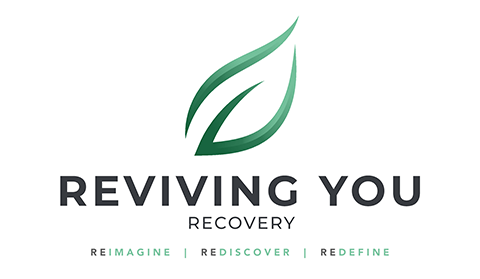Understanding Drug and Alcohol Relapse and How to Prevent It

Many people don’t realize that a relapse happens long before the first drink or drug is ever taken. This is because people who struggle with alcohol and/or substance use disorder (AUD and SUD) also struggle with something that is known as “the obsession of the mind” (this concept was first presented in 12-Step recovery). So, to best understand drug and alcohol relapse, one should understand that it first occurs emotionally “in the mind,” which then leads to the physical act.
The Current Prevalence of Drug and Alcohol Relapse
Many people may not realize just how prevalent drug and alcohol relapse is in the U.S. According to the clinical journal Current Psychiatry Reports, “It has long been known that addictive disorders are chronic and relapsing in nature. Recent estimates from clinical treatment studies suggest that more than two-thirds of individuals relapse within weeks to months of initiating treatment.
For 1-year outcomes across alcohol, nicotine, weight, and illicit drug abuse, studies show that more than 85% of individuals relapse and return to drug use within 1 year of treatment.” Now, yes, these are pretty staggering statistics. However, it is important to see these statistics as a sign that there needs to be a paradigm shift rather than become resigned to the reality of them. Part of this shift can occur by better understanding what is known as the “three-part illness” of addiction.
Drug and Alcohol Relapse: Understanding the “Three-Part Illness”
There is a concept in recovery that breaks down addiction into three components. Hence, the label: the three-part illness. These three parts are the “mental obsession” (as previously referenced), the “physical allergy,” and the “spiritual malady.” All three of these components work together in a type of symbiotic relationship to keep someone unwell in active addiction. They can also lead to a relapse.
When someone with AUD or SUD takes a drink or a drug, it triggers what is known as the physical allergy. This means that when someone starts drinking or using, they cannot stop on their own free will. As is often said, “One is too many, and a thousand is never enough.” This physical allergy is what can extend a relapse. But, a relapse starts in relationship to the other two parts of the “illness.”
When someone feels emotionally, mentally, or spiritually unwell in recovery, this can be a dangerous sign that a relapse may be right around the corner. This is because those feelings arise when an individual is no longer focused on their recovery plan or personal well-being. They are no longer connected. This must be addressed as soon as possible to avoid a potential relapse.
How to Best Prevent a Drug and Alcohol Relapse
One of the best ways of avoiding a relapse is by staying connected to others, and more specifically, others in a recovery community. This connection not only gives people an outlet for which they can express their struggles openly and honestly, but it also keeps them accountable for their recovery plan.
Also, this allows for a critical component of recovery known as “service.” Service is when one individual in recovery helps someone new to recovery with their current struggles. There is even a chapter about it in the primary text of 12-Step recovery (known most commonly as the “Big Book”) entitled Working With Others.
The chapter explains, “Practical experience shows that nothing will so much insure immunity from drinking [or using] as intensive work with other [people in recovery]. It works when other activities fail.” The other aspect of this concept of service is that helping someone else with their problems makes it impossible for them to think of their own. This is often referred to as “getting out of your head.”
Get Your Questions Answered Now
Utilizing Relapse Prevention Plans for Long-Term Recovery
If a relapse happens, which is not uncommon in a recovery journey, the key is to get right back into a recovery plan of action and keep moving forward. It is also helpful to use the information learned from relapse to create a relapse prevention plan.
These prevention plans may include creating or widening one’s “sober network” (a list of people one can call if they feel as though they are struggling), setting boundaries for others in a shared living space (such as no alcohol or substances in the home), and becoming more engaged in a recovery community, recovery meetings, and/or therapy. Doing these things can greatly reduce the chance of another relapse.

Healing at the Cellular Level With Reviving You Recovery
Here at Reviving You Recovery, we believe in healing at the cellular level. This means not just treating addiction but treating the underlying emotions that lead to addiction.
We also believe in a mission of love and compassion in the form of healing. This is why we extend that offering of love and compassion to each resident who trusts us with their care.
Relapse is more prevalent than many people think. Many people are also unaware of the mental and emotional aspects of a relapse. A relapse occurs long before an individual takes their first drink. It is the mental obsession and the emotional distress that often leads to that first drink or drug. However, it doesn’t have to. There are ways to recognize these mental and emotional signs so that relapse is ultimately avoided. If you are interested in how love, compassion, gratitude, joy, hope, and forgiveness are not just mere emotions, rather, they are the guiding forces that lead us toward healing and transformation, please reach out to us today at (951) 723-7598.
We Accept Most Insurances
We are in network with:






We know insurance coverage can be a source of uncertainty for people. We make sure you have all the information necessary. The great news is health insurance can potentially cover the total treatment costs. If you don't have insurance, we offer cash payment options for our treatment programs and are committed to working with clients regardless of financial situations.
